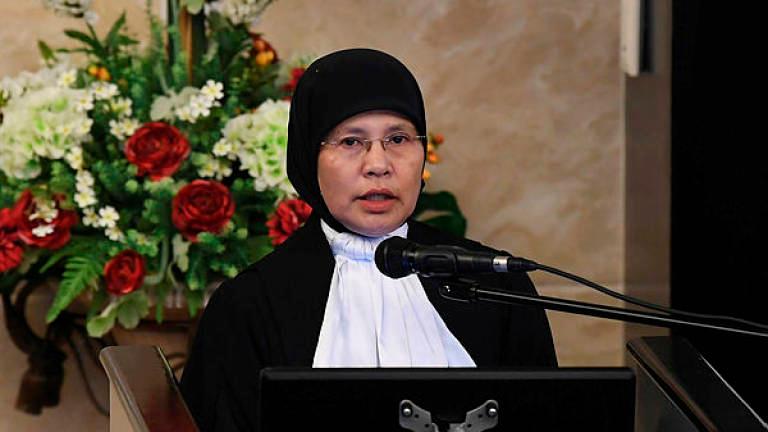KUALA LUMPUR: The Judiciary’s plan for 2021 is to digitalise the taking of guilty pleas in traffic cases and to allow the payment of fines electronically, said Chief Justice Tun Tengku Maimun Tuan Mat (pix).
In a 2021 New Year message issued yesterday, she said at present, a mechanism exists in section 137 of the Criminal Procedure Code which enables an accused person to plead guilty to a summons by way of a letter.
“Through that mode, the magistrate is allowed to dispense with the personal attendance of the accused, to convict him and to impose a sentence of fine only. However, this provision is hardly utilised. Our statistics disclosed no recent instances of guilty pleas by way of letter.
“To reduce unnecessary foot traffic and to enhance access to justice and the efficiency of the Magistrate Courts, we propose, in addition to the guilty plea by letter method, to allow the taking of pleas and to impose the sentence of fines only, via a prescribed electronic system,” she said.
She added that this method has been implemented in several other jurisdictions such as Singapore, England and Wales and Australia.
Tengku Maimun said the digitalisation of the traffic cases complements e-Jamin, a system that allows for the online payment of bail, and which has been fully operational.
“We have fully expanded our e-Courts Finance, which is our online and cashless payment mechanism, throughout Peninsular Malaysia. For Sabah and Sarawak, the system will be completed in the later part of 2021,” she said.
Once the electronic plea of guilt system is up and running, the Judiciary’s next project is to integrate it with Artificial Intelligence (AI) as a guideline for sentencing.
“The Subordinate Courts in Sabah and Sarawak have spearheaded integrating the use of AI in sentencing for certain common offences. To ensure consistency in sentencing, we seek to do the same in Peninsular Malaysia for certain cases and we aim to pair it with the online plea system.
“This project is in the pipeline for the later part of 2021 subject to the law regulating electronic system for guilty pleas, in place,” she said.
The chief justice said she appreciate the concerns that the Bar Council had on conducting trials online, such as the possibility of witness-coaching.
“Now we have the newly inserted Order 33A of the Rules of Court 2012 which came into effect on Dec 15, 2020. Order 33A contains specific procedure on how online trials are to be conducted.
“But even before the coming into force of Order 33A, the High Court in Kuala Lumpur had successfully conducted examination of witnesses online. No process is ever perfect but we have to move in tandem with time,” she said.
In another development, Tengku Maimun said the High Courts in Malaya and in Sabah and Sarawak have disposed a total of 5,663 cases out of 7,544 cases fixed to be heard online between March and December this year.
“This gives a rather good disposal rate of about 75 percent.
“At the Court of Appeal, 484 out of 1,122 appeals fixed to be heard online were disposed of while at the Federal Court, 345 cases (civil and criminal appeals including motions for leave) were fixed to be heard online and of those, 164 cases have been disposed of.
“As for the Subordinate Courts, the Magistrate and Sessions Courts throughout Malaysia fixed 12,733 cases to be heard online, out of which 5,659 cases have been disposed of,” she said.
Meanwhile, she said it has always been the tradition of the Judiciary to host the Opening of the Legal Year every year, however, the circumstances arising out of the Covid-19 pandemic do not permit them to do so in 2021.
“The main challenge posed by the pandemic has been to ensure that the administration of justice does not grind to a halt as a result of the lockdown measures imposed to control it.
“Consequently, significant efforts have been made across the justice system to ensure progress in legal proceedings, despite the constraints,” she said. — Bernama









